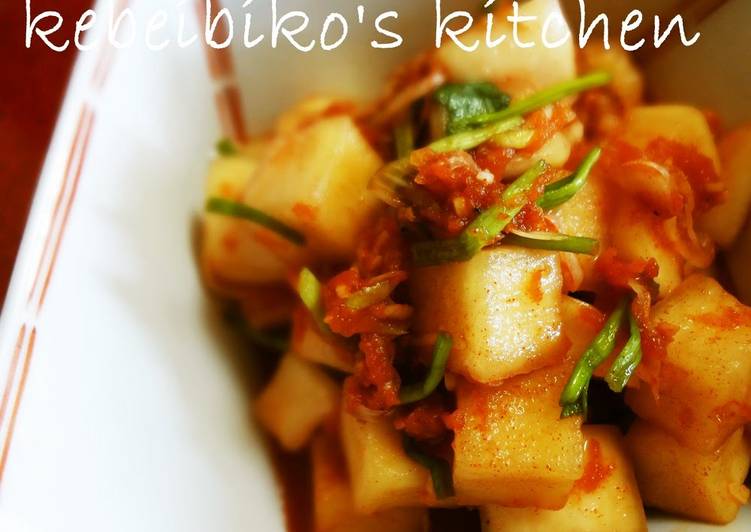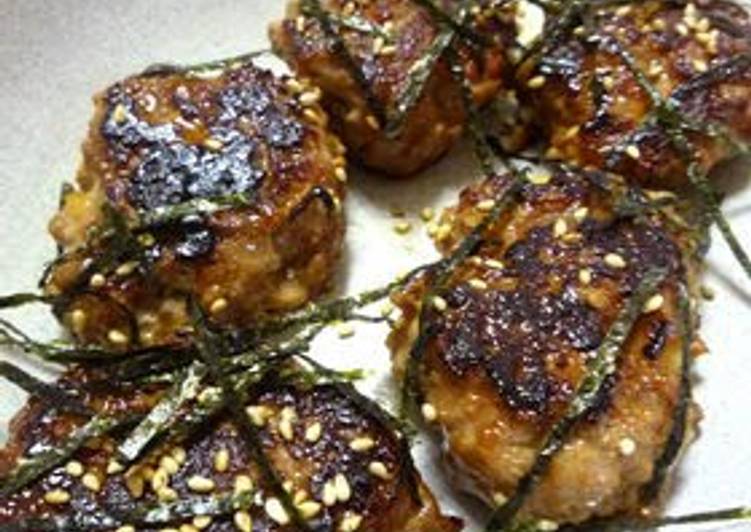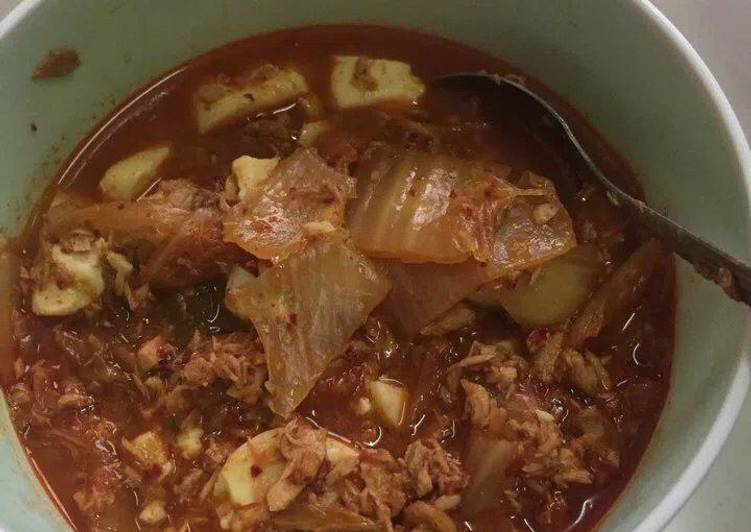
Hello everybody, hope you are having an incredible day today. Today, I will show you a way to make a distinctive dish, kkakdugi (cubed radish kimchi). One of my favorites. This time, I am going to make it a bit tasty. This is gonna smell and look delicious.
Kkakdugi (Cubed Radish Kimchi) is one of the most favored of current trending foods in the world. It’s enjoyed by millions every day. It’s easy, it is quick, it tastes delicious. Kkakdugi (Cubed Radish Kimchi) is something which I’ve loved my whole life. They are nice and they look fantastic.
Daikon radish, fish sauce, garlic, ginger, green onion, hot pepper flakes, korean radish, salt, sugar. Kkakdugi (깍두기) is a kimchi made with Korean radish, mu (or moo, 무). It's an easy kimchi to make!
To get started with this recipe, we must prepare a few components. You can have kkakdugi (cubed radish kimchi) using 12 ingredients and 13 steps. Here is how you cook it.
The ingredients needed to make Kkakdugi (Cubed Radish Kimchi):
- Make ready 1 large Daikon radish
- Make ready 2 tbsp Salt
- Get For the sauce:
- Get 1 Apple
- Get 2 tbsp Korean chili (finely powdered)
- Make ready 3 tbsp Fermented krill (saeujeot) (or fish sauce)
- Make ready 1 clove Finely chopped garlic
- Prepare 1 tsp Minced ginger
- Make ready 1 Japanese leek (white part)
- Take 2 tbsp Sugar
- Prepare 1/2 tbsp Salt
- Take 1/2 bunch Chinese celery (or garlic chives)
Many Koreans say Kkakdugi made in mid to late autumn (October to December) tastes best as it is. Kkakdugi (깍두기) or diced radish kimchi is a variety of kimchi in Korean cuisine. Usually, it has all the ingredients of kimchi, but the baechu (hangul: 배추; Napa cabbage) used for kimchi is replaced with Korean radish (called mu, 무 in Korean). Kkakdugi - Korean Cubed Radish Kimchi.
Instructions to make Kkakdugi (Cubed Radish Kimchi):
- [Prep the daikon radish] Peel the daikon radish and cut into 2 cm cubes. Put in a plastic bag and mix evenly with 2 tablespoons of salt. Let sit for 1 to 2 hours. The daikon radish will release a lot of water…
- Occasionally rub the daikon from outside the bag. Thoroughly drain the daikon in a colander (let sit for about 30 minutes. In Step 4 photo, you can see that 350 ml of water drained from the daikon on the left-hand side).
- [Prepping the sauce] Grate the apple. Cut the Japanese leek in half lengthways first and slice thinly and diagonally. Cut the Chinese celery into 3 cm widths. Put all the sauce ingredients into a bowl and combine.
- After the red colour from the chill is evenly distributed, add the daikon. Stir well (if your skin is sensitive, use gloves).
- Pour the mixture into a storage container and chill in the fridge. You can eat it the following day. After 1 week to 10 days, the flavour will become well rounded. It will not be tart.
- This photo shows two day-old kkakduki.
- [Korean powdered chili] You can keep leftovers in the fridge to prevent discolouring.
- [Fermented krill] You can buy bottled ones at the supermarket and freeze leftovers.
- You can cook various dishes with it.
- "Stir-fried Potato with Fermented Krill" - - https://cookpad.com/us/recipes/145848-potato-fermented-krill-stir-fry
- "Pale Pink Edamame Bean Rice with Fermented Krill" - - https://cookpad.com/us/recipes/145337-pink-tinged-fermented-krill-edamame-rice
- "Pasta Aglio e Elio with Nanohana and Fermented Krill" - - https://cookpad.com/us/recipes/153061-spaghetti-aglio-e-olio-with-nanohana-and-fermented-krill
- "Kimchi Hot Pot Sundubu Jjigae-style"
So, if you have never made The size of the radish cubes for Kkakdugi comes in all different sizes. Who can resist the crunch, refreshing, and perfectly fermented Korean radish kimchi called "Kkakdugi"? Put the kkakdugi into a glass jar and press down on the top of it to remove any air from between the radish cubes. Crunchy cubes of korean radish pickled in a spicy mixture of chili flakes, scallions, ginger and salted brine shrimp. Kkakdugi is a popular kimchi paired with Kimchi comes in all shapes and sizes, but this Kkakdugi (깍두기) made with large Korean radish is a perennial favorite.
So that’s going to wrap it up with this exceptional food kkakdugi (cubed radish kimchi) recipe. Thanks so much for your time. I’m confident that you can make this at home. There is gonna be interesting food at home recipes coming up. Don’t forget to save this page in your browser, and share it to your family, friends and colleague. Thanks again for reading. Go on get cooking!


